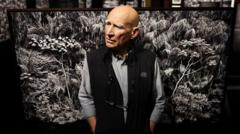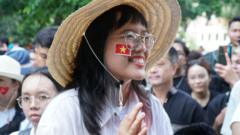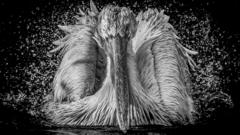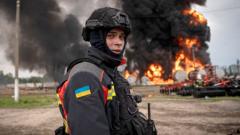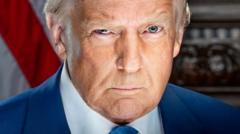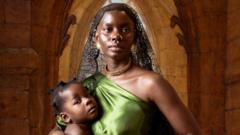The Vietnam War, ending 50 years ago, saw transformative photography that profoundly influenced American perspectives on war, soldiers, and their country. Iconic images, captured by diverse photojournalists, encapsulated the emotional scars of war and contributed to political discourse and public sentiment.
The Lasting Impact of Vietnam War Photography on American Perception

The Lasting Impact of Vietnam War Photography on American Perception
A retrospective examination of how iconic images from the Vietnam War reshaped American views on conflict and national identity.
The Vietnam War remains a pivotal event in American history, one marked not merely by its combatants and strategies but by the stark, emotive imagery that was captured and broadcast to the public. As we commemorate the 50th anniversary of the war's conclusion this month, it is worth reflecting on the profound impact that photography had on shaping perceptions of the conflict, illustrating both the human cost of war and the multifaceted nature of cultural identity during this turbulent time.
In the words of Tim O’Brien, author of "The Things They Carried," the literature of war often grapples with themes of survival tempered by suffering: “I survived,” he stated, “but it’s not a happy ending.” This encapsulation resonates with countless veterans and civilians alike, forever marked by what they witnessed or experienced.
The contributions of a diverse group of photojournalists were crucial in documenting the Vietnam conflict. Notably, Dickey Chapelle, the first female war correspondent to die in Vietnam, approached her work with a mix of tenacity and anti-Communist fervor. Her contemporary, Tim Page, provided a more laid-back perspective as a British journalist embracing the chaotic essence of war, while Henri Huet's French-Vietnamese background added a layer of complex humanity to the images he captured.
These photojournalists collectively contributed to an evolving narrative that transcended geographical boundaries. Their work not only altered global perceptions of Vietnam but fundamentally reshaped how Americans regarded their military, the nature of warfare, and their own national identity. The visual legacy of the Vietnam War continues to serve as a powerful reminder of the struggles faced during that era, and the way such profound events leave an indelible mark on a nation's conscience.


